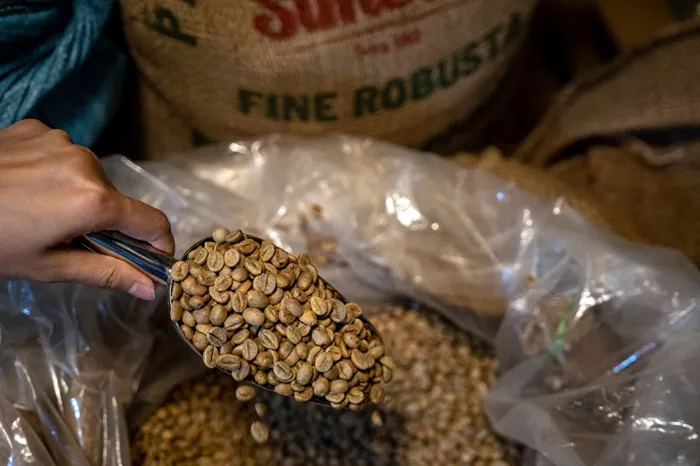Coffee is one of the most beloved beverages globally, cherished for its aroma, flavor, and energizing properties. However, many coffee drinkers are unsure about how long an unopened bag of coffee beans lasts before it loses its freshness. The shelf life of coffee beans depends on several factors, including the type of packaging, storage conditions, and the inherent properties of the beans themselves.
Shelf Life of Unopened Coffee Beans
Typical Shelf Life
Unopened bags of coffee beans can generally last anywhere from 6 to 12 months past the roasting date when stored under optimal conditions. This duration is a general guideline, and the freshness of the beans can vary depending on storage practices and packaging. After this period, the beans may still be safe to drink, but their flavor will significantly degrade.
Factors Affecting Shelf Life
Several factors contribute to the shelf life of coffee beans. Some of the most important include:
Packaging Type
The way coffee beans are packaged plays a crucial role in their longevity. Packaging designed to minimize exposure to air and moisture helps preserve the beans’ freshness for a longer period.
Storage Conditions
The environment where coffee beans are kept can significantly affect how long they stay fresh. Proper storage is key to maximizing the shelf life of coffee.
Storage Conditions
Optimal Storage Environment
To ensure that unopened coffee beans last as long as possible, store them in a cool, dark, and dry place. Exposure to light, heat, and humidity can accelerate the aging process of the beans and cause the oils inside them to break down more quickly. This leads to a loss of flavor and aroma. Ideal storage locations include kitchen cupboards, pantry shelves, or other areas away from direct sunlight.
Avoiding Light and Heat
Coffee beans are particularly sensitive to light and heat. Both can cause the natural oils in the beans to oxidize, resulting in a stale, flat flavor. Sunlight, heat sources, and humidity all speed up this process, diminishing the freshness of the beans over time. Therefore, it is important to keep coffee beans in a sealed container and out of direct sunlight or heat to maintain their quality.
Packaging Types
Valve Bags
One of the most common packaging types for coffee beans is the one-way valve bag. These bags allow gases, such as carbon dioxide, to escape while preventing air from entering. This feature helps preserve the freshness of the beans and extends their shelf life. The valve ensures that the coffee beans can still “off-gas” after being sealed, preventing the bag from expanding due to the release of gas, which might otherwise compromise the freshness of the beans.
Vacuum-Sealed Bags
Vacuum-sealed bags are another excellent option for extending the shelf life of coffee beans. These bags work by removing air from the packaging, which helps reduce the rate of oxidation, a key factor in aging. By eliminating oxygen from the bag, vacuum-sealed coffee beans are less likely to lose flavor or become stale as quickly. This type of packaging is particularly beneficial for long-term storage.
Signs of Stale Coffee Beans
As coffee beans age, they lose their freshness, flavor, and aroma. Here are some signs that your coffee beans may be stale:
Aroma
Fresh coffee beans should have a strong, pleasant aroma. If the beans have a flat or rancid smell, it could indicate that they have gone stale. Stale beans may also have a sour or musty odor due to the breakdown of their oils.
Appearance
The surface of fresh coffee beans is often shiny, thanks to the natural oils they release. Over time, these oils can evaporate, leaving the beans looking dry and dull. Stale beans will often have a less glossy appearance, indicating that the oils have either degraded or been lost.
Additional Tips
Freezing Coffee Beans
For long-term storage, some coffee drinkers choose to freeze their coffee beans. Freezing can effectively preserve the freshness of beans, especially if you buy coffee in bulk. However, there are some considerations:
Best Practice: If freezing, portion the beans into smaller amounts to avoid repeated exposure to moisture each time you thaw them. Ideally, only take out what you plan to use and return the rest to the freezer immediately.
Drawbacks: Freezing can introduce moisture, which may affect the quality of the beans, especially if they are not stored in an airtight container. Always ensure that the beans are well-sealed before freezing.
Best-By Dates
Coffee manufacturers often include a best-by date on the packaging to indicate the period in which the beans are at their peak freshness. While unopened coffee beans can last for several months, it’s best to use them within a few months of opening the package to enjoy the best flavor. After opening, coffee beans begin to lose their flavor more rapidly, and it’s ideal to consume them within 1-2 weeks.
Conclusion
An unopened bag of coffee beans can last between 6 to 12 months, depending on how it’s stored and the type of packaging used. To maximize freshness, it is essential to store coffee beans in a cool, dark, and dry place, avoiding exposure to light, heat, and moisture. Choosing high-quality packaging, such as valve bags or vacuum-sealed bags, can help extend the shelf life and preserve the coffee’s rich flavor. Pay attention to the aroma and appearance of the beans, and consider freezing them for long-term storage if necessary. By following these tips, you can ensure that your coffee beans remain fresh and flavorful for as long as possible.
Related topics:
- How Long Do You Brew Coffee in a French Press?
- How Long to Microwave Water for Coffee: A Comprehensive Guide
- How Long After Roasting is Coffee Best?


